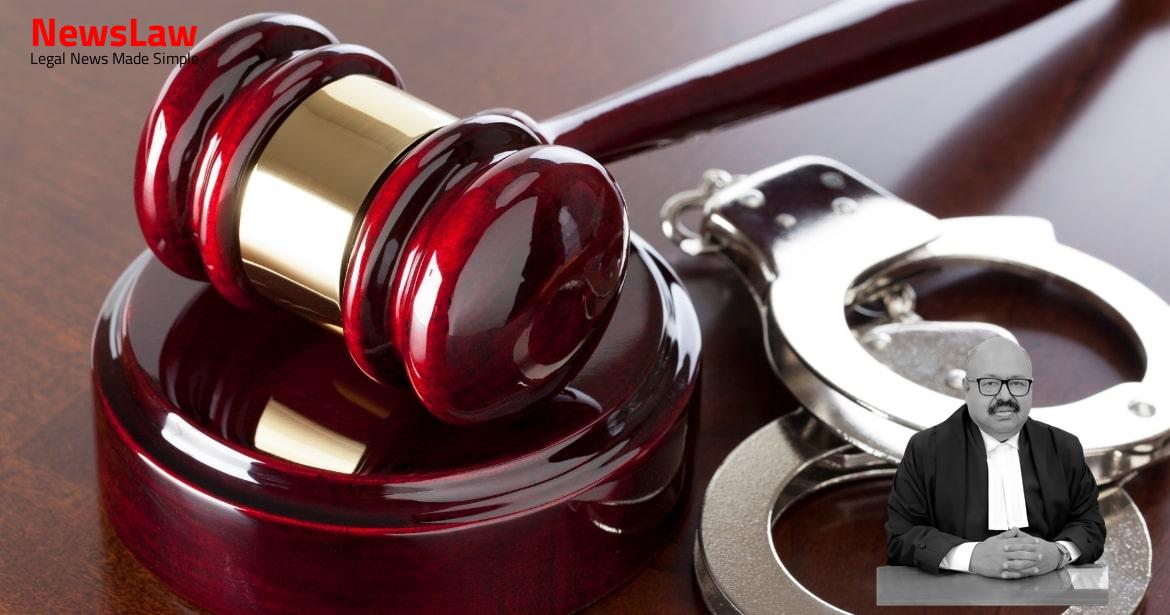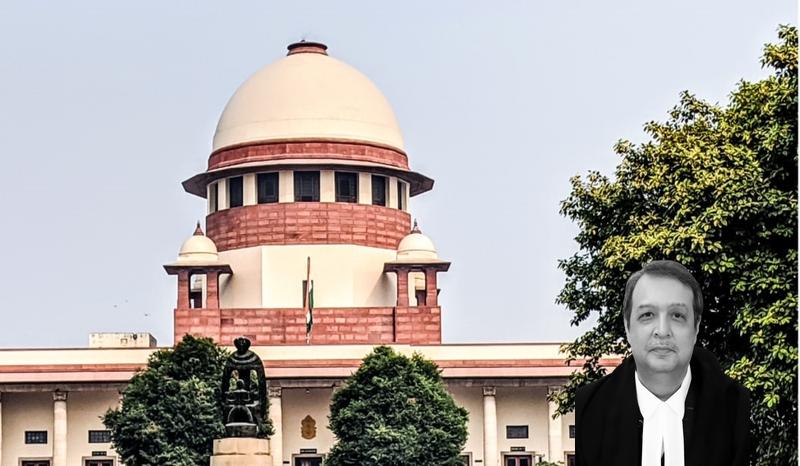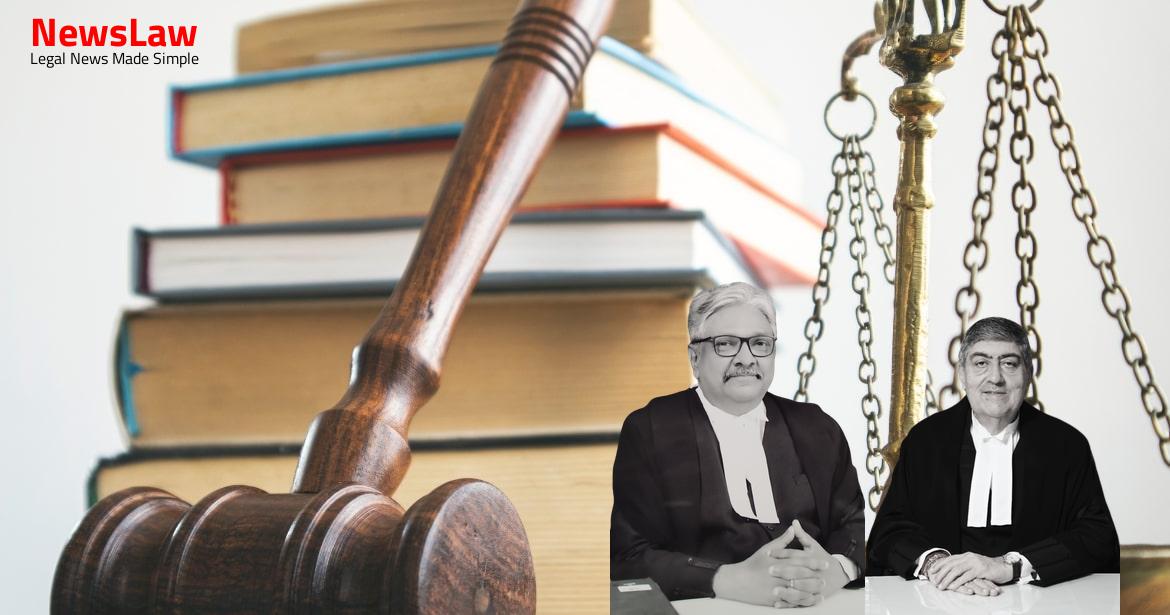Delve into the realm of arbitration law as we unravel the court’s meticulous legal analysis on limitation periods in disputes. The courts play a pivotal role in deciphering complex legal matters and ensuring justice is served. Follow along to grasp the nuances of this critical aspect of legal proceedings.
Facts
- Contracts awarded by the Appellant to the Respondent were completed by 31.03.2002, with final payments received under protest.
- The contract period ended in 2001 and 2002 respectively.
- Arbitration proceedings were initiated by the Respondent on 07.11.2006 due to demands for reimbursement on price variations in material, labor, and fuel.
- The Respondent’s demands for reimbursement were made in letters dated 08.09.2003, 24.07.2004, and 12.10.2004.
- The Respondent later requested for appointment of an arbitrator in a letter dated 07.11.2006, initiating arbitration proceedings.
- Despite final contract certificates issued by the Appellant in 2003 and final payments received by the Respondent, demands for reimbursement persisted between 2007-2009.
- The learned Single Judge of the High Court for the State of Telangana ruled that the Section 11 applications were considered to be within the time limit.
- This decision was based on the fact that the applications were filed within three years from the letter dated 10.11.2010, which had rejected the request to appoint an arbitrator.
Also Read: Interpretation of Section 43B: Debentures vs. Interest Payment
Issue
- The issue raised in the notice under reply is the appointment of an arbitrator for adjudication of the dispute.
- The appointing authority has not appointed the arbitrator as per the contention.
- Arbitration proceedings allegedly commenced on 07.11.2006.
- In case the Hon’ble Appointing authority continues to abstain from appointing an arbitrator, the client may seek appointment of an arbitrator by the Hon’ble Chief Justice of the High Court of A.P.
Also Read: Judicial Scrutiny of Arbitrary Taxation Statutes
Arguments
- The Respondent argued that the cause of action for appointing an arbitrator arose on 10.11.2010 when the request was rejected for the first time.
- Counsel relied on the case of Vidya Drolia v. Durga Trading Corpn. to support the time-barred nature of the claim and the absence of a subsisting dispute.
- The Respondent distinguished the judgments in Geo Miller & Co. v. Rajasthan Vidyut Utpadan Nigam Ltd. and Vidya Drolia v. Durga Trading Corpn. from the present case, citing specific procedures in the GCC for arbitrator appointment.
- The High Court’s decision to allow the Section 11 applications was supported by the Respondent.
- Referring to past judgments and statutory provisions, the Court discussed the commencement of the limitation period for filing applications under Section 11 of the Arbitration Act.
- The Court quoted from the Damodar Das case and discussed key dates related to the dispute initiation and the subsequent silence of the Respondent regarding claims.
- Ultimately, Shri Y.V. Ramakrishna was appointed as arbitrator to resolve disputes between the parties, with the limitation of claims left to be considered by the arbitrator.
- The Appellant contended that the limitation period started on 23.01.2007 when the request for an arbitrator appointment was received by the President.
- The rejection of the request constituted a failure to perform under the GCC, giving rise to the cause of action on 10.11.2010 under the Arbitration Act.
- The Appellant mentioned receiving the final bill under protest, but did not provide documentation to support this claim.
- Final bill amounts will be released upon submission of a no claim certificate to the Cantonment Board.
- No claims will be entertained after submitting the no claim certificate.
- The client is not entitled to reimbursement for variation in prices as claimed by the respondent.
Also Read: Ensuring Transparency in Electoral Processes
Analysis
- Courts are only required to examine the existence of an arbitration agreement post-2015 amendments.
- Section 11(6-A) added by the 2015 Amendment limits the court’s examination to the existence of an arbitration agreement, regardless of any previous court judgments.
- Section 43(1) of the Arbitration Act applies the Limitation Act, 1963 to arbitrations like court proceedings.
- The arbitration clause in the agreements specifies that disputes are to be referred to a sole arbitrator appointed by the President Cantonment Board in Secunderabad under Indian law.
- Limitation law in arbitration cases is procedural and typically to be decided by the arbitrator based on facts and applicable law.
- Correspondence by the appellant after the limitation period does not extend the limitation period.
- Judicial interpretation limits court interference in referring disputes to arbitration, especially when it is unclear if the claim is time-barred or non-arbitrable.
- The court’s role in an application under Section 11 is limited to examining the existence of the arbitration agreement before making a reference.
- The distinction between the limitation period for filing a petition for an arbitrator appointment and the limitation for substantive claims in the commercial contract should be clear.
- The court should refer a matter if the validity of the arbitration agreement cannot be determined prima facie.
- The judgment in Vidya Drolia reaffirms the legal positions in Duro Felguera and Mayavati Trading.
- Section 37(3) of the 1940 Act deems arbitration to have commenced when a notice requiring the appointment of an arbitrator is served by one party to the other.
- The judgment in Mayavati Trading (P) Ltd. holds that the Patel Engg. Ltd. judgment is legislatively overruled.
- The period of limitation for an application for appointment of an arbitrator under Sections 8 and 20 of the 1940 Act starts from the date when the ’cause of arbitration’ accrued.
- The Court’s role at the reference stage is to cut off deadwood and ensure that the matter stops if it must.
- The Court’s intervention is minimized at the pre-reference stage so as not to thwart the arbitral process when a preliminary objection is raised.
- The Court’s power under Section 11(6A) of the 1996 Act is narrow and aimed at only examining the existence of an arbitration agreement.
- The Law Commission recommended restricting judicial intervention to situations where the arbitration agreement is found to be non-existent or null and void.
- Limitation for filing an application under Section 11 arises upon failure to appoint an arbitrator within 30 days of the notice invoking arbitration.
- A party cannot postpone the accrual of cause of action by writing reminders or sending reminders.
- The Court’s primary review must weed out manifestly non-existent or invalid arbitration agreements and non-arbitrable disputes.
Decision
- Respondent’s demands were rejected in the reply notice dated 16.02.2010
- Repeated letters were sent by the Respondent despite rejections
- Legal notice dated 30.01.2010 is time-barred
- Claim made on merits is also time-barred
- Three years had elapsed by February 2013 from the starting point of limitation on merits
- Appeals allowed and High Court judgment set aside
Case Title: SECUNDERABAD CANTONMENT BOARD Vs. M/S B. RAMACHANDRAIAH AND SONS (2021 INSC 186)
Case Number: C.A. No.-000900-000902 / 2021



